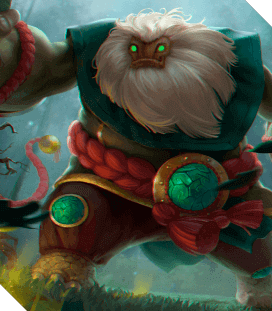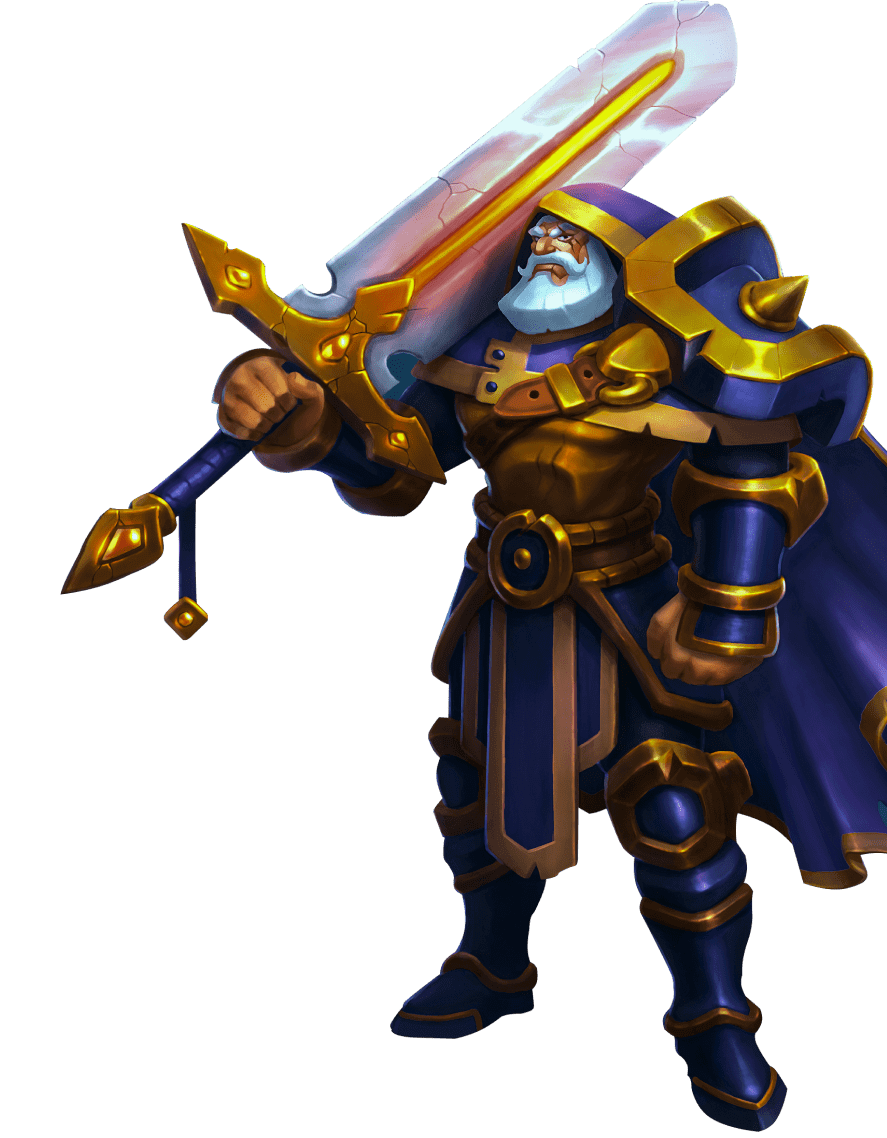The gaming industry is no stranger to innovation and groundbreaking technology, but a recent surge in artificial intelligence (AI) integration promises to revolutionize the entire landscape. From creating more immersive and engaging game worlds to streamlining the development process, AI is poised to redefine how we experience and develop video games. So, will AI disrupt the video game industry? Let’s explore how it’s already shaping the industry and future trends.
Key Takeaways
- AI is revolutionizing the gaming industry, providing more immersive experiences with limitless potential.
- Executives are optimistic about AI’s future role in game development, as it will manage over half of production within 5 to 10 years.
- AI offers revolutionary potential to create dynamic and personalized experiences for players.
- Publishers can’t completely replace human resources with AI to develop video games without losing the game’s quality and engagement level.
- Kevuru Games team overcomes challenges with full-cycle artificial intelligence development services.
What is AI in Gaming?
AI in gaming refers to integrating artificial intelligence technology into developing and enhancing video games. AI is set to redefine our experience and development of video games, improving game mechanics, creating more immersive worlds, and streamlining the development process.
The Growing Role of AI in Video Game Development
Artificial intelligence has gradually been infiltrating the video gaming industry, enhancing various aspects of game design. Some ways AI is being used in gaming include:
- Creating realistic and intelligent NPCs;
- Generating dynamic and adaptive environments;
- Improving game graphics and visual effects;
- Enhancing the player experience through personalized gameplay
Industry executives are optimistic about the future of AI in gaming, anticipating that it will manage more than half of game development within 5 to 10 years.
AI is already enhancing pre-production by planning content and streamlining development processes. Industry leaders anticipate a greater role for AI-generated characters, dialogue, and environments in the coming years.
Why AI Can’t Replace Human Touch in Game Development
AI has made significant strides in game development, such as procedural content generation, bug detection, and even certain aspects of game design. While AI can be a valuable tool in game development, it is most effective when used to augment human developers’ capabilities rather than replace them. AI can assist in procedural tasks, data analysis, and optimization, freeing human developers to focus on creative and strategic aspects of game development. Understanding that AI can only partially replace human resources in developing video games is essential. Here’s why:
Creativity and Innovation: Game development often involves creativity, storytelling, and artistic expression, which are deeply human attributes. While AI can assist in generating some aspects of games, such as landscapes or characters, it needs the innate creativity and intuition that human developers bring to the process. The human touch is essential for creating unique and captivating gaming experiences.
Narrative and Emotion: Crafting engaging narratives, character development, and evoking emotions in players are areas where humans excel. AI may assist in generating dialogue or storylines, but the depth of emotion and storytelling humans can provide is currently unmatched.
Adaptation and Player Interaction: AI can adapt gameplay to some extent based on player behavior. However, human game designers possess the intuition to create experiences that respond to player actions in genuinely dynamic and engaging ways. The art of designing games that adapt seamlessly to player choices and decisions remains a predominantly human endeavor.
Quality Assurance and Player Feedback: AI can assist in identifying bugs and performance issues, but the final judgment of game quality often relies on human testing and feedback. Human testers can assess gameplay feel, aesthetics, and overall player experience in ways that AI cannot.
Ethical and Moral Decisions: Game development sometimes involves making ethical or moral decisions regarding content, character portrayals, and in-game choices. These decisions require human judgment, empathy, and a deep understanding of cultural and societal norms.
Pre-Production and Planning With AI
In the early stages of game development, AI is pivotal in enhancing the planning process. AI-generated art is already being used to create a game world, along with:
- characters;
- engaging NPCs;
- captivating stories.
Understanding player behavior is crucial for game design and monetization strategies. AI can analyze player data to uncover patterns, preferences, and pain points. It can assist in crafting dynamic and adaptive narratives. AI systems can generate branching storylines that respond to player choices. This information can inform design decisions, helping developers create more engaging and enjoyable gameplay experiences. For example, “No Man’s Sky” and “Minecraft” games prove the power of AI-driven procedural generation.
AI-Generated Characters, Dialogue, and Environments
Developing AI-generated characters, dialogue, and environments is among the most promising aspects. These lifelike creations can surpass manual development, resulting in more immersive gaming experiences. AI’s potential in the gaming industry is vast, with some companies dedicating half of their programmers to AI development.
Creating believable and diverse characters is a fundamental aspect of game design. AI-driven character generation tools use neural networks and machine learning to craft characters with distinct personalities, appearances, and behaviors. Additionally, AI-generated characters can be employed to populate open-world games with many non-player characters (NPCs) that interact with the player in meaningful ways. AI algorithms can also produce lifelike character movements and animations, improving the overall visual quality of games.
It can generate dialogue that responds dynamically to the player’s actions and choices. NLP algorithms allow AI to understand player input and generate appropriate responses, making in-game interactions more immersive and dynamic. This technology is precious for dialogue-heavy genres like role-playing games (RPGs) and interactive fiction.
The creation of expansive worlds and environments is a time-consuming and resource-intensive task. AI can expedite this process by generating realistic terrain, buildings, and landscapes.
The Potential of Generative AI in the Gaming Industry
Generative AI, a powerful artificial intelligence capable of generating new content from existing data, holds tremendous potential for the gaming industry.
- Creating dynamic stories and lifelike NPCs;
- Crafting game assets and environments;
- Generating user-generated content;
- Enhancing procedural generation techniques.
These applications of generative AI are opening up exciting new possibilities for game development and player experiences, including creating their own games.
Story Generation and NPCs
AI’s role has become invaluable in this era where dynamic and evolving narratives are in high demand. AI-generated dialogue and behavior can result in incredibly natural and lifelike interactions, while personalized stories can be crafted based on individual player actions and choices. It can use these capabilities to craft complex and dynamic environments that facilitate immersive and interactive gaming experiences.
Game Assets and LiveOps
AI-generated game assets and LiveOps offer an efficient and cost-effective solution for game development. AI significantly cuts the time and money spent on game development by automating the creation of game levels, characters, and dialogue. Additionally, AI can craft engaging LiveOps, such as events, challenges, and rewards, further enhancing the gaming experience.
User-Generated Content
AI can significantly enhance user-generated content, a noteworthy trend in the gaming industry. With AI-generated content, players can create in-game objects such as:
- Unique levels;
- Characters;
- Objects;
- Innovative game modes and experiences.
Empowering users with AI tools fosters creativity within the gaming community, extends the game’s life, and strengthens player engagement.
Challenges and Concerns Surrounding AI in the Video Game Industry
Integrating AI in the video game industry brings its own challenges and concerns, such as intellectual property issues, strategy and implementation challenges, and talent implications. In the fast-changing gaming, developers must navigate these challenges to ensure they harness AI’s full potential responsibly and ethically.
Intellectual Property Concerns
As AI-generated content blurs the lines of ownership and rights, intellectual property concerns are becoming increasingly relevant. Developers must carefully consider the implications of AI-generated content on copyright protection and ownership rights.
However, by establishing proper guidelines and policies, the industry can effectively manage these concerns while still capitalizing on AI’s potential.
Strategy and Implementation Challenges
Developers face a complex challenge when implementing AI in the gaming industry. Clear strategies are needed to navigate the technical and ethical considerations while also balancing the needs of players, games, and businesses.
By staying proactive and disciplined in their approach, developers can unlock the full potential of AI and revolutionize the gaming experience.
Talent Implications and Job Security
As AI integration leads to job displacement and a shift in required skill sets, talent implications and job security concerns arise. Developers must adapt to the changing landscape and acquire new skills to stay relevant.
However, the integration of AI also presents new job opportunities and the potential for more advanced tasks and roles within game development.
How Game Developers Can Harness the Power of AI
Artificial intelligence (AI) influences the transformation process of game development, opening new opportunities for creativity, efficiency, and player engagement. To stay competitive and create cutting-edge gaming experiences, game developers must harness the power of AI.
Developers can maximize the potential of AI and revolutionize the gaming industry using the following opportunities:
- Procedural content generation;
- Dynamic storytelling;
- Player behavior analysis;
- Realistic animation;
- Quality assurance and bug detection;
- Personalization and dynamic difficulty adjustment;
- Virtual Reality (VR) and Augmented Reality (AR).
Procedural Content Generation
AI-driven procedural content generation is a game-changer for developers. Developers can use AI algorithms to generate vast, diverse, detailed game worlds, levels, and assets. This opportunity saves time and ensures players encounter fresh experiences with each playthrough. To implement this, game developers can explore tools and libraries designed explicitly for procedural content generation.
Dynamic Storytelling
AI can revolutionize storytelling in games. Developers can employ AI to create dynamic narratives that adapt to player choices, making each play unique. Natural language processing (NLP) enables AI to understand and generate context-aware dialogues, immersing players in the game’s world. AI assistance is particularly valuable for RPGs and narrative-driven games.
Player Behavior Analysis
Understanding player behavior is critical for game design and monetization strategies. AI can analyze player data to uncover patterns, preferences, and pain points. This information can improve design decisions, helping developers create more engaging and enjoyable gameplay experiences. AI-driven analytics tools can provide valuable insights into player demographics, playtime, and in-game behaviors.
Realistic Animation
AI-driven animation tools can enhance character movements and behaviors. Motion capture combined with AI can create lifelike and responsive animations that react to the game’s environment and player input. This technology is invaluable for creating visually stunning and immersive gaming experiences.
Quality Assurance and Bug Detection
AI-driven testing tools can identify and report bugs, glitches, and performance issues more efficiently than manual testing. It saves time in the game development process and ensures a higher level of game quality by addressing issues early in development.
Personalization and Dynamic Difficulty Adjustment
AI can personalize gaming experiences by adapting gameplay elements based on individual player preferences and skill levels. Dynamic difficulty adjustment powered by AI ensures that the game remains challenging and engaging, catering to both casual and hardcore players.
Virtual Reality (VR) and Augmented Reality (AR)
AI algorithms can adapt virtual worlds to real-world surroundings, creating seamless and interactive experiences. Whether populating an AR city with AI-generated NPCs or immersing players in a VR fantasy realm, AI enhances the sense of presence and interactivity.
The Impact of AI on Smaller Gaming Studios and Mobile Games
By utilizing AI technologies, smaller studios can compete with larger companies and create more innovative gaming experiences.The impact of AI on smaller gaming studios and mobile games is evident in the following ways:
- Reduction of costs;
- Fostering innovation in game development;
- Leveraging AI-generated graphics;
- Automating various aspects of game development.
By leveraging AI-generated graphics, smaller studios can decrease game production costs and vie with larger companies. AI’s ability to automate tasks like game testing and debugging can significantly cut development costs, freeing up smaller studios to focus on creating innovative games.
Integrating AI in mobile game development can pave the way for more innovative and engaging gaming experiences. By streamlining content creation and optimizing game performance, AI can empower developers to create captivating mobile games that resonate with players.
The Future of the Video Game Industry with AI
The driving force behind the evolution in the game industry is artificial intelligence. AI is poised to reshape how people create, play, and experience, ushering in a new era of innovation and immersion. Here’s a glimpse into the future of the video game industry with AI at its core.
Job transformations and prospects
AI integration will lead to job transformations and prospects, requiring new skill sets and adaptability within the industry.
In the face of AI’s continuous evolution, developers need to acquire new skills and adapt to the changing landscape to stay relevant and capitalize on the exciting opportunities AI presents.
Enhanced Realism and Immersion
AI-driven advancements in graphics and physics simulations will lead to hyper-realistic game environments. Characters will exhibit lifelike behaviors and emotions, and game worlds will respond dynamically to player actions.
Procedurally Generated Worlds
AI-powered procedural content generation will advance even further. Games will feature procedurally generated landscapes, cities, dungeons, and quests that adapt to the player’s choices and actions. This will result in endlessly replayable experiences with a high degree of variety.
AI Co-op Partners and Adversaries
AI-controlled companions and adversaries will become indistinguishable from human players. These AI entities will adapt to the player’s strategies, making cooperative and competitive gameplay more challenging and rewarding.
AI-Generated Music and Soundscapes
AI algorithms will compose music and generate soundscapes that adapt to in-game situations and player emotions. It will enhance the emotional impact of gaming experiences and create a more immersive auditory environment.
Natural Language Interaction
Voice-controlled AI assistants within games will enable players to engage in natural conversations with characters and the game environment. It will deepen player immersion and open up new possibilities for interactive storytelling.
AI-Driven Game Mastering
In tabletop and pen-and-paper RPGs, AI will take on the role of the Game Master, dynamically creating quests, role-playing NPCs, and responding to player choices.
Kevuru Games’ Expertise in AI Game Development
Kevuru Games offers a full-cycle of game development, or our team can also provide separate services in different directions of development process to ensure that our client receives a top-notch game. From the initial idea to the finest intricacies of game management, we have it all covered. Our services of game development include:
- Fully executed development;
- Art creation 2D, or 3D different services on client’s demand;
- Level design;
- Quality assurance and testing;
- Game monetization consultations;
- Post-release support.
We provide AI game development individual services for designing and implementing in-game analytics, finite-state machine models, and full-cycle artificial intelligence development services. Our team assesses our clients’ needs and requests to identify the best AI strategy to help any project the most.
Summary
Artificial intelligence is revolutionizing the gaming industry, opening up new possibilities for game development, enhancing player experiences, and reshaping the digital entertainment landscape. So, if to put it this way, “Will AI disrupt video game industry?” we hope you have no doubts now that developers navigate the challenges and opportunities AI presents. They simply must adapt and innovate, ensuring that they remain at the forefront of this exciting new era in gaming. The future of the industry with AI is undoubtedly bright, and we eagerly anticipate the incredible gaming experiences that lie ahead.











